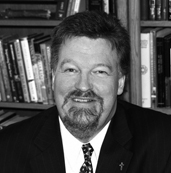Question: We have a close friend who at the slightest physical symptom panics big time! We attend the same church and we dearly love this person but don’t know how to put her mind at ease. Most of her symptoms have been easily treated and not long lasting; still, we’re concerned what is happening to her emotional well-being. Our pastor’s sermons are great and he often speaks about having faith. Somehow our friend is not “getting it.”
Is there anything we can do to help her? ~ Worried Friends
Dear Worried Friends,
First of all, thank you for your concern about your friend. Not everyone would show so much sympathy. But what to do about her? I would suggest that she see a psychiatrist.
Please don’t be put off by such a suggestion. I myself have had some therapy when I thought I was “stuck” on an issue and my experience with the “mind doctor” was quite helpful. While you are worried about what you see there may be other things going on with her, too, things about which you know nothing. So maybe there are some deeper things going on with her that are manifested through physical symptoms, and maybe even she doesn’t realize it.
If her problem is physical, perhaps her family doctor can help. But if the problem is not physical perhaps a mental health professional can be of assistance. Also, a psychiatrist can prescribe any medication that she might need. Some of us Americans may have a stigma about seeing somebody about something in our head; but, as I noted above, a mental health professional helped me out one time and maybe such a person could do the same for your friend.
Wishing you and her all the best,

The Rev. C. L. “Skip” Lindeman
lindemanskip@yahoo.com
Dear Worried Friends,
What strikes me immediately is the love and caring you have for your panicking friend. Rather than judge her or tell her to “get over it,” you are trying to find a solution for her – and a spiritual solution is exactly what she needs.
I like to think of our state of mind as a coin. One side of the coin says “Faith”, and the other side of the coin says “Fear.” We cannot be on both sides of the coin at the same time. As new thought author Marianne Williamson says, “We can see all human behavior as either love, or a call for love.” Your friend is suffering from a deep sense of fear. I cannot know what that fear is, but it really doesn’t matter exactly what it is; it only matters what it is doing to her state of mind and her quality of life. The Bible states, in Joshua 1:9, “Do not be afraid; do not be discouraged, for the Lord your God will be with you wherever you go.” Our greatest fear as humans is the fear of separation from our creator, and from our birthright of unconditional love. Fear of death or illness is also fear of separation from love. Focusing on the presence of Spirit, breathing in and out slowly and repeating to oneself “all is well” are tools that we can use when we feel anxious or afraid of what is to come. Grounding ourselves in the now moment takes us out of worrying about the past or the future.
Jesus told his followers that they should not be afraid of what was going to happen tomorrow, but to live in today with peace and joyful expectancy. Jesus knew that worrying about the past, or the future, robs us of our joy. Dr. Ernest Holmes, founder of the global organization Centers for Spiritual Living, wrote, “Fear is the great enemy of man … we are speaking about morbid fear, the kind that devitalizes us mentally, emotionally and physically.”
My best recommendation to you, dear friends, is to see your friend as a perfect child of God, happy joyous and free. See her as the beautiful Spirit she is behind her fears. She is perfect, whole, and complete. Pray for her to allow into her heart the love that surrounds her and to rest secure in the present moment. That is affirmative prayer, which transforms our lives and our world. Remember 1 John 4:18: “There is no fear in love. Perfect love casts out fear” and, in time, your friend will know it, too.

Rev. Karen Mitchell
revkarenmitchell@gmail.com
Question: I had a tumultuous childhood. Our home was filled with my parents fighting – mostly one-sided because my dad would get drunk, come home and argue with mom. Sometimes he would beat her up. When I was a senior in high school, I’d had enough and called the sheriff. They came and took my dad away for several months. I left home shortly after that.
Yesterday, the subject came up and a close relative wanted to know the details so I told him. I was surprised that I still had angry feelings about my dad because I believed I had forgiven him a long time ago. I also had extremely sad feelings about what my mom went through until she finally left him. I really want to totally forgive him and let it go. Is there a way to do that once and for all? ~ Sad Memories
Dear Sad Memories,
I’m sorry your childhood was tumultuous. Can I ask some initial diagnostic questions?
First: Do you blame yourself for any of the tumult or do you blame your dad?
Second: Do you think you did the right thing by calling the sheriff?
Third: Do you feel guilt for leaving home?
Lastly: Do you think it’s reasonable to expect to have no angry feelings toward your dad or sad feelings about your mom?
I’d like to remind you that none of this ugliness was your fault. Your dad brought violence into your home through drunkenness. You bravely interrupted the cycle of violence by calling the sheriff and you extricated yourself by leaving a toxic situation. But the last question is the hardest.
How can you have heard all you heard and seen all you saw and not feel sad and mad about it? Sadness and anger are completely appropriate responses to what happened in your home. These are deep and traumatic wounds from your formative years.
I applaud your desire to forgive. It is indeed noble. But while everyone smiles approvingly at the thought of forgiveness, the truth is when you forgive you give up something. And I just want to make sure you’re ready to give what forgiveness requires.
The cost is high. Forgiveness means you are volunteering to live with the consequences of your dad’s evil actions and then move on. You take retaliation off the table. You say goodbye to thoughts of revenge. You leave bitterness behind. Can you do this? We talk about this in church. Malice and bitterness have no place in the footsteps of Jesus.
I don’t know your religious background but the Bible mentions this subject.
Do not take revenge, my dear friends, but leave room for God’s wrath, for it is written: “It is mine to avenge; I will repay,” says the Lord. (Romans 12:9) Are you willing, right now, to let your dad off the hook? Or better yet – are you willing to take your dad off your hook and put him on God’s hook?
If you can do this, then you can forgive.
For those who seek to forgive, I always recommend first a reckoning of our own sins at the foot of the cross. Then I also recommend the guidance and encouragement of a qualified counselor who deals skillfully and regularly with these kinds of thorny issues.
May God grant you the ability to forgive and release from family brokenness.

Rev. Jon T. Karn
pastorjon@lightonthecorner.org
Dear Sad Memories,
It’s interesting how emotions emerge when we least expect them and creates uncertainty for situations we thought were already reconciled. Anger for a parent who was abusive and sadness for the surviving parent is not uncommon in dysfunctional households, particularly where alcohol is involved. As an adult child, you have the combined challenge of forgiving the offending parent, knowing more of the implications on the family system now that you’re mature and understand the behavior, and feeling a myriad of competing emotions for the victimized parent.
Your story is, sadly, one of many adult children of alcoholics. Your actions of calling the sheriff when you couldn’t stand by and do nothing speak volumes to your character and integrity. And that you were able to support your mom when she made the tough decision to overcome her fears and venture out on her own shows your courage as well. As a side-note, the national average of survivors of domestic violence leaving their abusers is a stunning eight times. It sounds like your mom may have been one of the fortunate ones who went to create a new life for herself sooner than later.
Forgiveness is an extremely misunderstood concept. We’ve heard the phrase “forgive and forget” as a means to move on from an unhealthy or abusive situation. The reality is that we seldom forget atrocities, such as abuse, so it seems counterintuitive to try. Another way to look at forgiveness, particularly from a faith viewpoint, is to forgive as an act of will. The action doesn’t necessarily include forgetting.
When we forgive someone as an act of will, the process allows us to release the burden of holding the negative emotions and allowing God to exact justice on our behalf. It means we agree to do our best to let go of our need/desire to punish and leave that task to Him to deliver the consequences of His choice. We are then free to love again with an open heart. We may even find ourselves loving the abuser, from a distance of course, and praying for him or her to heal from the hurts that were the driving factors that perpetuated the abuse.
Scripture is replete with messages about forgiveness, beginning in Genesis and extending throughout the New Testament. One of the most thought-provoking is Luke 22:34a, which reads: “Then Jesus said, “Father, forgive them. They don’t know what they’re doing.” (GW)
Some of the last words that Jesus uttered were about forgiveness. He was in physical, mental and emotional agony, separated from the Father, and still willing to let go of offense. This action is powerful imagery for us to emulate. As we surrender our anger at injustice to Him, the weight and burden of offense lifts off our backs, leaving it with the rightful judge.
Sometimes we have to surrender our anger many times before we finally believe that we’re free from the oppression. From my own experience as a survivor of domestic violence, I can tell you that it’s worth the effort.
Be well & be blessed!

lucindaguarino1@gmail.com
